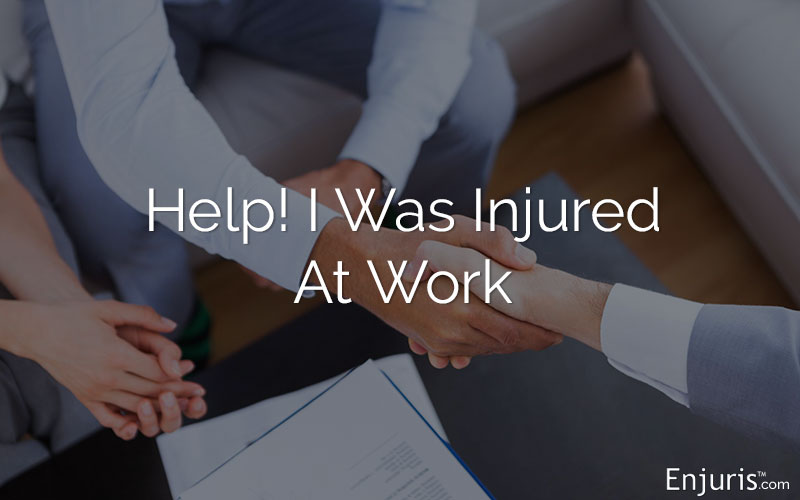
On March 22, 2021, a 21-year-old gunman walked into a King Soopers grocery store in Boulder, Colorado, and killed 10 people.
According to the United States Bureau of Labor Statistics, the number of workers in the private industry who experience workplace violence is on the rise.
| Workplace violence incidents in the United States (private industry only) | |||||||
|---|---|---|---|---|---|---|---|
| Injury | 2013 | 2014 | 2015 | 2016 | 2017 | 2018 | 2019 |
| Non-fatal | 13,810 | 15,980 | 16,160 | 16,890 | 18,370 | 20,790 | 20,870 |
| Fatal | 393 | 395 | 411 | 483 | 441 | 439 | 444 |
In light of the tragic Colorado shooting, let’s take a look at whether workers who experience workplace violence can receive workers’ compensation benefits.
Overview of the King Soopers grocery store shooting
On the afternoon of March 22, Ahmad Al Aliwi Alissa, armed with a military-style semi-automatic rifle, walked across the King Soopers parking lot on Table Mesa Drive and shot a 23-year-old repairman in a cargo van. He then shot another man who was running away before calmly entering the grocery store and opening fire.
Shoppers and employees ran for cover.
“We were telling them, ‘Gun, gun, gun! Shooter! Run for your life!’” customer Ryan Borowski said. He escaped out a back loading dock, along with several other people.
Logan Smith, who worked at the Starbucks kiosk inside the grocery store, told shoppers to run. He then helped his co-worker, a 69-year-old Taiwanese woman, hide in a corner under the Starbucks counter.
At the cheese counter, manager Darcey Lopez balled herself up inside a cabinet beneath the wrapping station. Unable to see what was happening, she waited and listened.
“It was like ba-ba-ba-ba-ba-ba. Ba-ba-ba-ba,” Darcey said. “It stopped, and I thought he was done. And then he started shooting again.”
Several workers and customers inside the store sent messages to loved ones.
Angelina Romero-Chavez sent a text to her mother, but her phone’s battery died right after she pressed send. She wrote: “There has been a shooting at King Soopers. Me and Amos are in a storage closet.”
Others called 9-1-1, and the first officers arrived on the scene within 2 minutes of the first call.
“They didn’t hesitate at all,” said a man watching the scene unfold from his apartment across the street. “I couldn’t believe how brave they were. They sprinted right in.”
The police engaged with the gunman, and the gunman fired twice at police, killing 51-year-old Eric Talley.
Soon after the shooting began, an armored vehicle rammed into the building and broke the store’s front windows. Ten minutes later, the police used a sound system to order the suspect to surrender.
Dressed only in shorts and bleeding heavily from a gunshot wound to his right thigh, the gunman walked out of the grocery store backward and was handcuffed.
Ahmad Al Aliwi Alissa is currently in jail, charged with 10 counts of murder.
Can employees receive workers’ compensation benefits for workplace violence?
Workers’ compensation is a form of insurance that provides compensation to workers who are injured on the job.
With limited exceptions, all public and private employers in Colorado must provide workers’ compensation coverage for their employers.
For a worker to receive workers’ compensation, their injury must “arise out of and in the course of” their employment.
An injury arises out of and in the course of employment if there’s a connection between the work required to be performed and the resulting injury. In other words, if the injury wouldn’t have happened but for the employment.
To help clarify this point, let’s look at 2 Colorado workplace violence cases. In the first case, workers’ compensation coverage was denied. In the second case, workers’ compensation coverage was granted.
Martin Valasquez and James Sanchez v. Industrial Commission of Colorado
Martin and James were both shot by a co-worker while working for the city. The co-worker shot the workers because he believed they were responsible for making several obscene telephone calls to his wife.
Martin and James filed workers’ compensation claims, but their claims were denied.
Why?
The court explained:
“Although [Martin and James] were injured on the premises of their employer, they failed to establish that their injuries would not have occurred but for the fact that their employment positioned them where they were when injured. The shooting could have happened at any other time or place, wherever and whenever, the co-employee happened to find [Martin and James].”
The court went on to explain that “when the animosity or dispute that culminates in an assault is imported into the employment from claimant’s domestic or private life, and is not exacerbated by the employment, the assault doesn’t arise out of the employment."
In other words, in this case, the court ruled that there was no connection between the work required to be performed and the resulting injury from the shooting.
Colorado Compensation Insurance Authority v. Ron Jones
Kenneth Satterfield was driving a truck with an attached semi-trailer for his employer when he approached a herd of cattle. The cattle were being herded on the road by Ron Jones, the owner, and Harley Hagan, who was assisting Ron. Kenneth slowed but did not stop, and he proceeded to pass the herd. This angered Ron and Harley.
As Keneth drove away, Harley pursued him for some distance. Harley then went to his nearby home, grabbed a gun, and went looking for Kenneth. Harley found Keneth unloading the semi-trailer several miles from the initial incident. Harley shot Kenneth, and as a result of the wound, Kenneth was paralyzed from the waist down.
Because his injury arose out of and in the course of his employment, Kenneth received workers' compensation benefits.
In the case of the King Soopers grocery store shooting, the injured victims and the families of the deceased will probably receive workers’ compensation benefits. To date, there has been no evidence that the shooter knew the victims personally and would have shot them regardless of where they were. Rather, it appears the victims would not have been shot but for the fact that they happened to be working in the grocery store.
What’s more, the employees who witnessed the violence will probably be able to receive compensation if they suffered a “mental impairment.” A mental impairment is a permanent disability (such as PTSD) arising from a “psychologically traumatic event that is generally outside of a worker’s usual experience.”
Finally, the injured workers and the families of the deceased can file a third-party lawsuit against the gunman for any damages not covered by workers’ compensation.


 When you’re up against a corporation or insurance company with a workers’ compensation claim, insurance dispute or personal injury matter, you can be confident in the Colorado attorney representing you at The Babcock Law Firm. We’re well versed in the tactics big companies use to try to prevent you from receiving the settlement or benefits you deserve, and we are fully committed to helping people just like you fight and win cases. View
When you’re up against a corporation or insurance company with a workers’ compensation claim, insurance dispute or personal injury matter, you can be confident in the Colorado attorney representing you at The Babcock Law Firm. We’re well versed in the tactics big companies use to try to prevent you from receiving the settlement or benefits you deserve, and we are fully committed to helping people just like you fight and win cases. View 